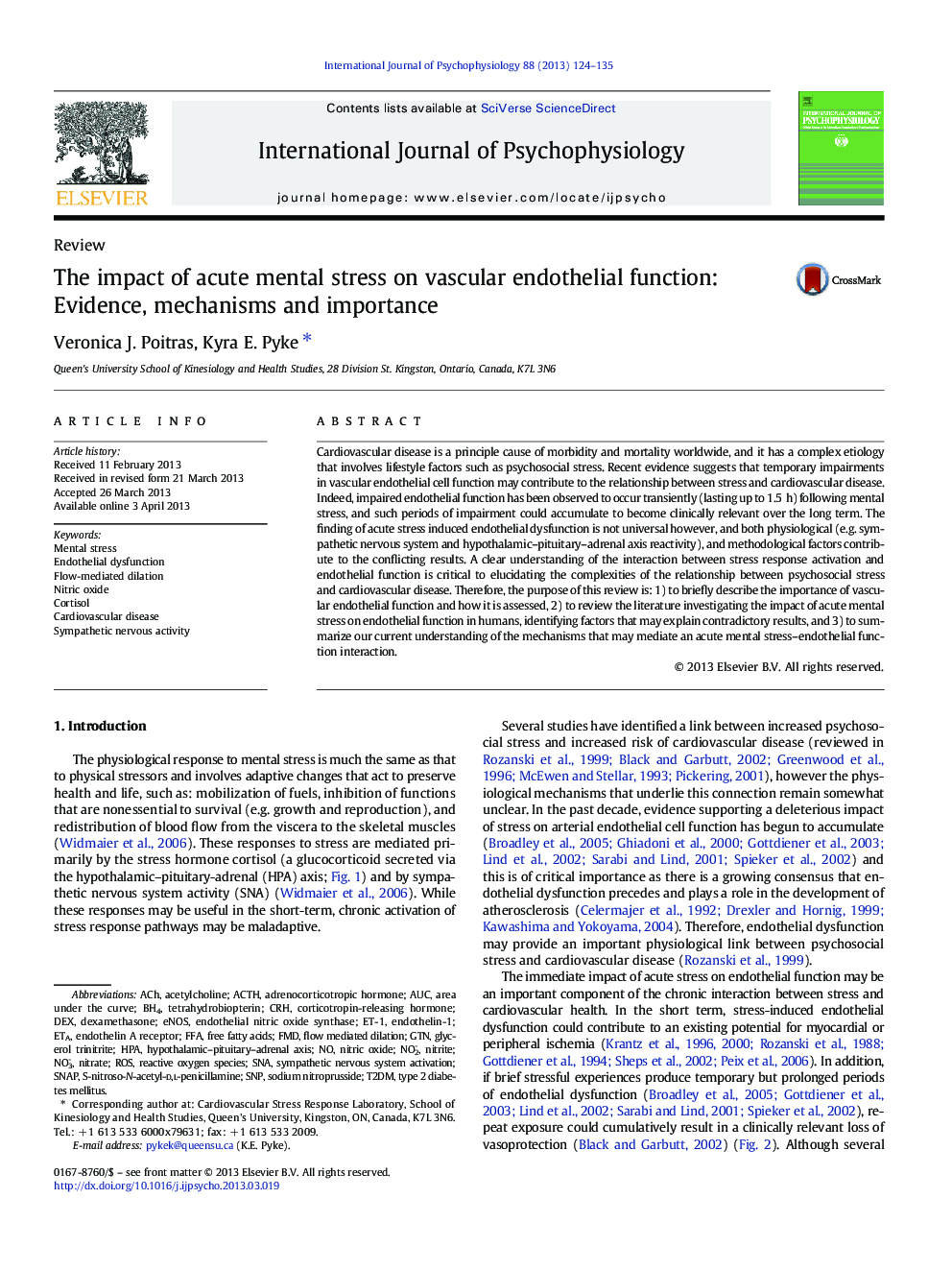| Article ID | Journal | Published Year | Pages | File Type |
|---|---|---|---|---|
| 929804 | International Journal of Psychophysiology | 2013 | 12 Pages |
•Acute mental stress may result in transient vascular endothelial dysfunction.•This may provide a physiological link between stress and cardiovascular disease.•We review human studies examining the impact of acute mental stress.•The timing of stress tasks vs. vascular tests influences mechanisms of interaction.•Vulnerability to stress induced dysfunction depends on individual characteristics.
Cardiovascular disease is a principle cause of morbidity and mortality worldwide, and it has a complex etiology that involves lifestyle factors such as psychosocial stress. Recent evidence suggests that temporary impairments in vascular endothelial cell function may contribute to the relationship between stress and cardiovascular disease. Indeed, impaired endothelial function has been observed to occur transiently (lasting up to 1.5 h) following mental stress, and such periods of impairment could accumulate to become clinically relevant over the long term. The finding of acute stress induced endothelial dysfunction is not universal however, and both physiological (e.g. sympathetic nervous system and hypothalamic–pituitary–adrenal axis reactivity), and methodological factors contribute to the conflicting results. A clear understanding of the interaction between stress response activation and endothelial function is critical to elucidating the complexities of the relationship between psychosocial stress and cardiovascular disease. Therefore, the purpose of this review is: 1) to briefly describe the importance of vascular endothelial function and how it is assessed, 2) to review the literature investigating the impact of acute mental stress on endothelial function in humans, identifying factors that may explain contradictory results, and 3) to summarize our current understanding of the mechanisms that may mediate an acute mental stress–endothelial function interaction.
